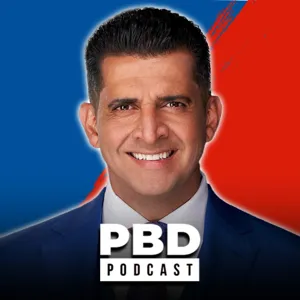Podcast Summary
Insights from Pulitzer Prize-winning author Daniel Yergin on energy markets and effective communication skills: Expert insights from Pulitzer Prize-winning author Daniel Yergin on energy markets, communication skills, and the global shift towards renewable energy sources can be gained from the Think Fast, Talk Smart podcast.
Effective communication skills are essential in business and life, and the Think Fast, Talk Smart podcast, with its expert guests and valuable tips, is an excellent resource for improving these skills. Additionally, the global energy market is undergoing significant changes, with a shift from traditional oil to mining minerals like copper for renewable energy sources. This transition will require massive mining operations, and the supply of copper and other necessary minerals is a critical consideration. Pulitzer Prize-winning author Daniel Yergin, who has studied energy markets for decades, provides insights into the complex geopolitical landscape surrounding energy independence, Russia's relationship with China, and the challenges facing electric car manufacturers. When considering Russia's current circumstances, Yergin's past analyses offer valuable insights into potential futures for the country.
Russia-Ukraine Conflict's Economic Impact: The Russia-Ukraine conflict has major economic consequences for Russia and the international community, including sanctions, decreased trust, potential insurgency, and uncertain negotiations for a settlement. Control over southern Ukrainian ports is a significant issue.
The current conflict between Russia and Ukraine has significant economic implications for both Russia and the international community. Russia's economy is expected to suffer for a long time due to sanctions and decreased trust from Western businesses. The conflict may continue with Russia gaining control over certain territories in Ukraine, leading to an extended insurgency, or it could result in more apocalyptic outcomes. Negotiations for a settlement are possible, but it's unclear if Putin would accept terms that are irreconcilable with his goals of establishing Ukraine as part of Russia. The capture of southern ports in Ukraine, such as Kherson and Mariupol, is a significant point of contention in the conflict. Ultimately, the conflict's resolution will depend on the willingness of both sides to compromise and find a peaceful solution.
Russia's capture of key Ukrainian ports and areas significant for Ukraine's economy and global food supply: Russia's actions in Ukraine are cutting off Ukraine from the sea, straining its economy, and causing food prices to rise in the Middle East. Russia's unreliability as an energy supplier may also decrease its role in the 'big three' in oil and gas.
Russia's capture of key Ukrainian ports, including Odesa, and the surrounding areas, such as the Zaporizhzhya nuclear plant and Mariupol, is significant because it cuts off Ukraine from the sea and strangles its economy. Russia and Ukraine together export around 30% of the world's wheat, and this conflict is expected to cause food prices to skyrocket in the Middle East. Russia's actions also aim to choke off Ukraine's supply lines coming through Poland, which could be the most dangerous move yet. Furthermore, we are moving beyond the OPEC versus non-OPEC world, and the "big three" in oil and gas are now China, the US, and Russia. However, Russia's role in this trio may be diminishing due to its unreliable status as an energy supplier, particularly to Europe. Germany's decision to no longer rely on Russia for energy and instead focus on LNG exports and renewable energy sources means that Russia's gas sales to Europe over the next five years will significantly decrease, along with its oil sales. Instead, Russia is trying to make China its biggest customer, but its reputation as an unwanted supplier could limit its success in this regard.
Russia and China's Growing Alliance: An 'Anti-Western, Anti-US' Bloc: Russia's economic dependence on China and China's need for raw materials have strengthened their alliance, despite potential risks and uncertainty.
Russia and China's relationship has grown stronger in recent years, with Russia becoming more economically dependent on China and China regarding Russia as a source of raw materials. Putin and Xi have described each other as best friends, and their alliance is seen as an "anti-Western, anti-US, anti-West" bloc that rejects the international order. Despite predictions that the US and Russia might align against China, the circumstances have changed, and Russia and China are currently closely aligned. However, the extent of China's desire for closeness to Russia remains to be seen, with potential risks of sanctions and tying international position to an economically struggling Russia. It's unclear if Putin informed Xi of his plans to invade Ukraine beforehand, and the current crisis is testing the limits of their friendship.
Geopolitical tensions and renewable energy shift: Rising geopolitical tensions present opportunities for aggressive actions, while renewable energy gains popularity but may take decades to dominate. Electric cars progress rapidly, but oil and gas remain crucial.
Geopolitical tensions and power vacuums, such as Russia's invasion of Ukraine and the perceived weakness of the United States under Biden, can create opportunities for aggressive actions by world leaders. At the same time, there's a growing shift towards renewable energy, with electric cars becoming increasingly popular, but it may take decades to reach 80% renewable energy consumption due to the significant role of fossil fuels and the challenges in securing supply chains for renewable energy technologies. Another key point is the remarkable progress of electric cars, from being an oddity to becoming the 17th best-selling car in America, with major automakers investing heavily in the technology. However, even in the most aggressive net-zero carbon scenarios, oil and gas will still play a significant role, and securing supply chains for renewable energy technologies is a growing concern.
Transition to renewable energy and EVs requires massive mining for minerals like copper: The shift to renewable energy and electric vehicles necessitates significant mining operations for minerals, but supply chain challenges and long permit processes could pose challenges to meeting demand.
The transition to renewable energy and electric vehicles will require massive mining operations for minerals like copper, which could face supply chain challenges due to long permit processes and the time it takes to open a mine. The US shale industry's transformation into a major oil and gas producer has had significant economic and geopolitical implications, making the US a leading exporter of oil, gas, and LNG, and reducing reliance on imports from countries like Saudi Arabia. This has changed the US balance of payments position and given it a major geopolitical asset. Technological breakthroughs in recycling batteries could help mitigate the need for mining new minerals, but it's essential to consider the potential supply chain constraints in the shift towards renewable energy.
Saudi Arabia shifts economic power by accepting Chinese payments: Saudi Arabia accepts Chinese payments to challenge US dollar dominance, China aims to diversify customer base, US sanctions may prompt further reactions and creation of alternative financial systems.
The recent news of Saudi Arabia accepting payments in Chinese renminbi from its largest customer, China, symbolizes a shift in economic power and a move towards distancing from the United States. This move is significant for both parties as China aims to challenge the dominance of the US dollar in the world economy, while Saudi Arabia seeks to diversify its customer base and reduce dependence on the US. The use of sanctions by the US has raised concerns among other countries, leading to potential exploration of alternative financial systems that do not rely on the US. This "massive retaliation" through sanctions may prompt further reactions and efforts to create a financial system independent of the US, potentially challenging the dominance of the US dollar.
China's Shift to Electric Vehicles: A Strategic Move: China is the world's largest EV market due to concerns over oil imports, urban pollution, and economic competitiveness. Companies like BYD, which produce both batteries and EVs, are major players. China's push towards EVs addresses multiple challenges, making it a leader in the industry and reducing oil imports.
China's shift towards electric vehicles (EVs) is a significant development with far-reaching implications. Driven by concerns over oil imports, urban pollution, and economic competitiveness, China is now the world's largest market for EVs. Companies like BYD, which produce both batteries and EVs, are major players in this market and are seen as formidable competitors. China's push towards EVs not only addresses its national security and environmental concerns but also positions it as a competitive player in the global automobile market. This transition is a strategic move that addresses multiple challenges, making China a leader in the EV industry and reducing its dependence on oil imports.
The value of staying informed and engaging with the community: Stay informed, engage with the community, and maintain a curious mind for continuous learning, but remember that stock-related information should not be the sole basis for investment decisions.
Importance of staying informed and being open to new ideas and perspectives. Dan and Chris had a productive conversation on The Motley Fool, touching on various topics and expressing their respective views. They emphasized the value of engaging with the community and the importance of continuous learning. However, they also reminded listeners that any stock-related information shared on the program should not be the sole basis for investment decisions. Overall, the conversation underscored the significance of staying informed, staying engaged, and maintaining a curious mind.






